Blog
Read About Helping Youth Succeed in School, Career and Life
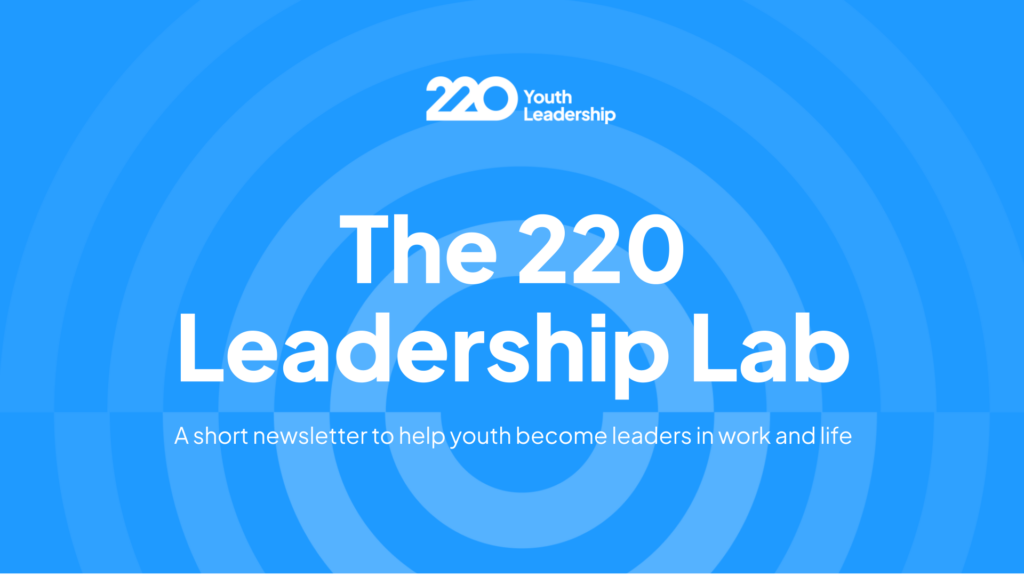
220 Leadership Lab: Free Readiness Assessment + AI Guide
This morning we’re sharing a new tool to make sure students are ready for life after graduation. Plus, a new global framework to teach students about AI in everyday life (because the future’s already here). Let’s go! 2 Ideas ✅ Student Readiness Assessment Every student deserves to feel ready for life after graduation. But what ... 220 Leadership Lab: Free Readiness Assessment + AI Guide
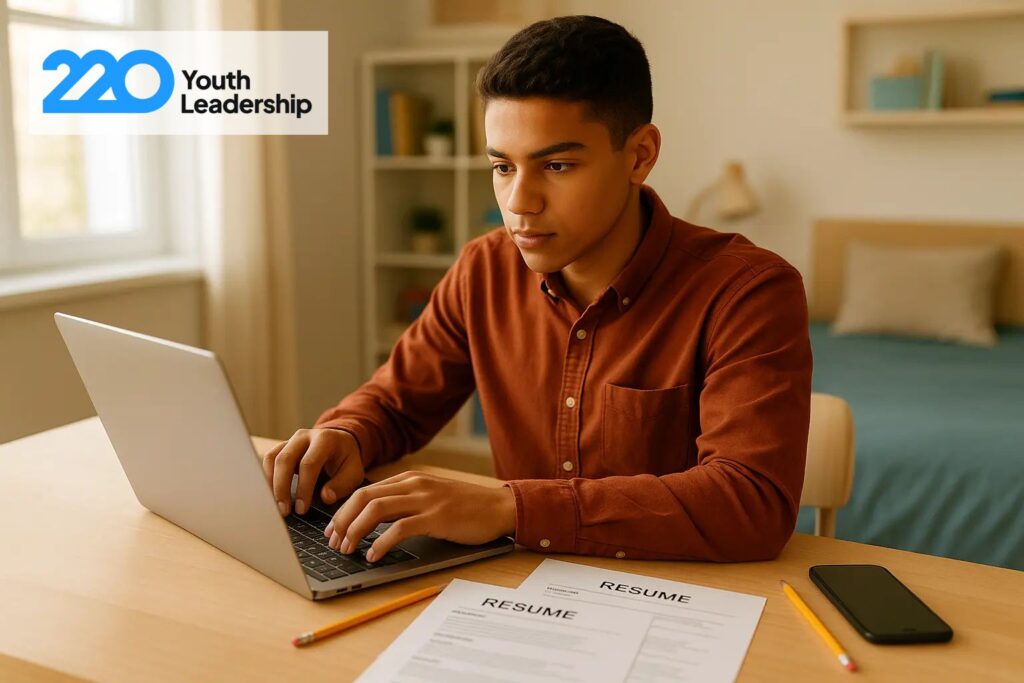
How to Write a Resume as a High School Student: Tips and Examples
Writing a resume as a high school student is an important step toward landing jobs, internships, or college applications. A high school resume is an important marketing tool for students, helping them present their skills and experiences effectively. This guide is designed specifically for your career level as a high school student, focusing on your ... How to Write a Resume as a High School Student: Tips and Examples

5 Key Strategies for Effective School Leadership in 2025
School leadership plays a central role in the success of any educational institution. But what does effective leadership look like in 2025? Across the country, principals and educational leaders are stepping up, influencing not only their schools but also the broader educational system. Their decisions and actions directly affect student outcomes, shaping the future of ... 5 Key Strategies for Effective School Leadership in 2025
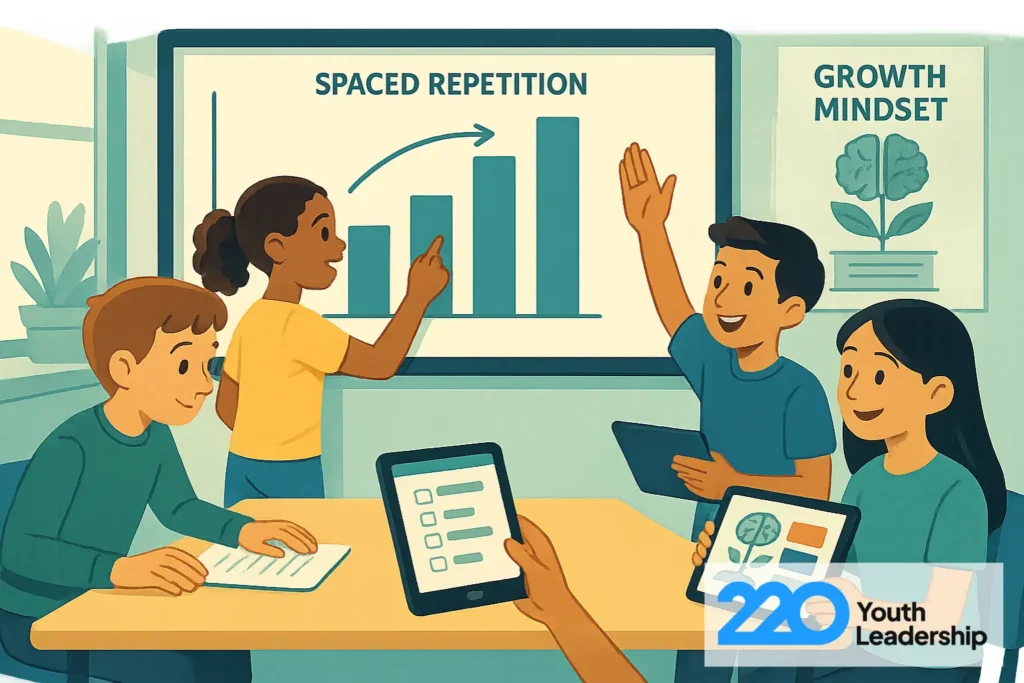
How Do Students Learn Best? Proven Strategies and Techniques
How do students learn best? The answer lies in approaches that actively involve them, respect their unique learning preferences, and use teaching methods backed by research. Instead of passively absorbing information, students learn best when they participate in activities that challenge their thinking and help them remember what they’ve learned. This article explores practical strategies ... How Do Students Learn Best? Proven Strategies and Techniques
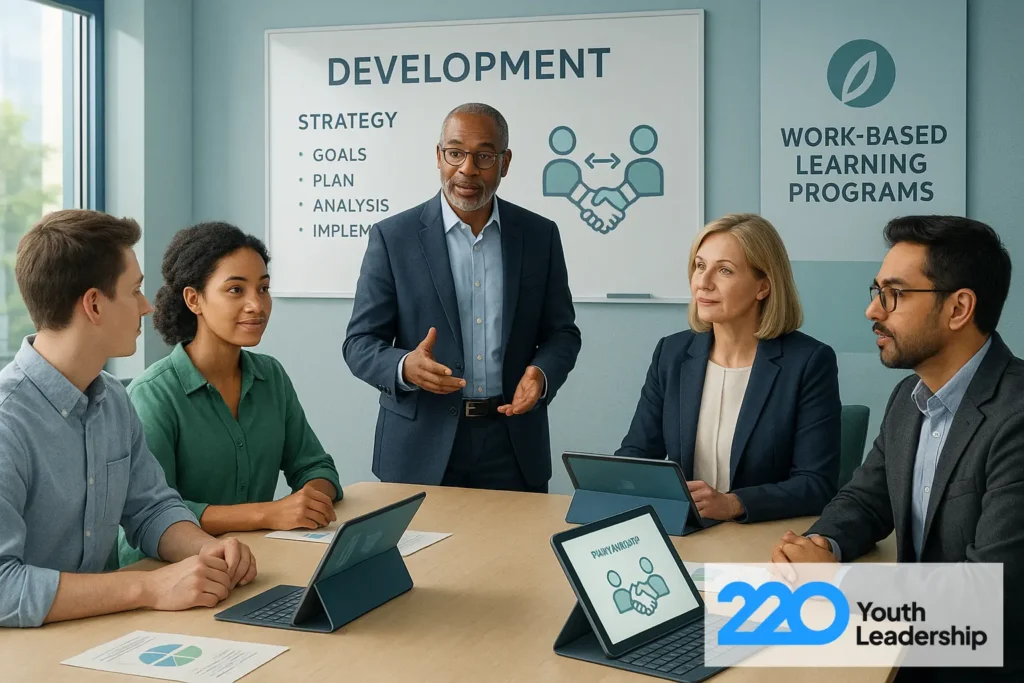
7 Strategies How Companies Kickstart Work-Based Learning Programs
Are you considering launching a work-based learning program in your company but not sure how to get started? You’re in the right place. Many organizations recognize the value of these programs but feel overwhelmed by the first steps. That’s why this article breaks down the process into seven actionable strategies, making it easier for any ... 7 Strategies How Companies Kickstart Work-Based Learning Programs

220 Leadership Lab: Truth About Kids’ Progress + $100K Lessons
Today we’re diving into an idea that hits both ends of the spectrum: the good news we should celebrate and the tough truths we can’t ignore. Plus, we’re exploring how money smarts in high school could add up to $100K and spotlighting a Chicago changemaker who’s making STEM classes feel like play. Let’s go! ... 220 Leadership Lab: Truth About Kids’ Progress + $100K Lessons
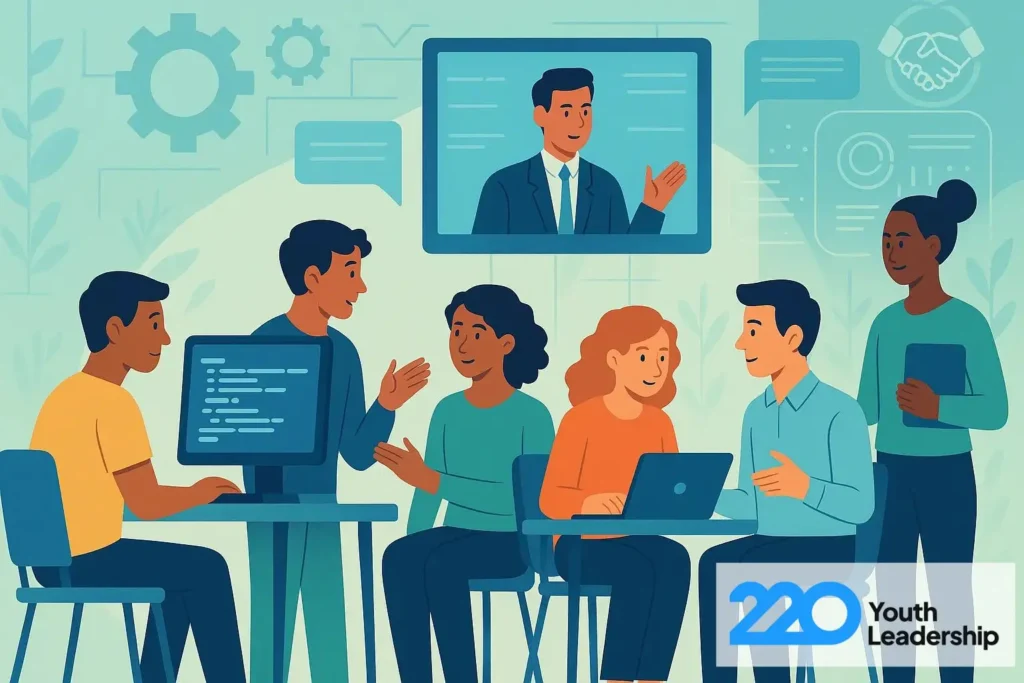
What is Workforce Development? Key Concepts, Benefits, and Strategies
What is workforce development and why should anyone care about it? Simply put, it is about equipping people with the skills and know-how to standout in today’s job market. Not only that. It’s a game-changer for building careers, boosting local economies, and preparing young people for future success. Get ready as we break down its ... What is Workforce Development? Key Concepts, Benefits, and Strategies
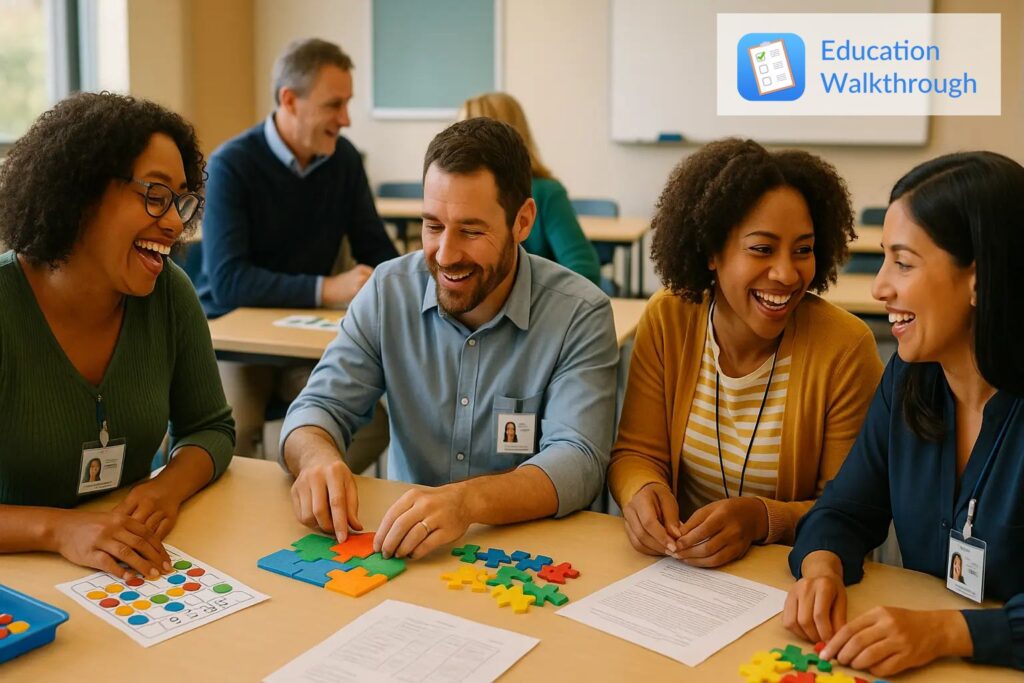
Out of School Time Programs: Everything You Need To Know
Out-of-school time programs play an important role in supporting students beyond the classroom. More than just a place to stay after school, these programs help improve academic success, build important social skills, and provide a safe, engaging space for children to grow. Whether you’re a parent or an educator, understanding how these programs work and ... Out of School Time Programs: Everything You Need To Know
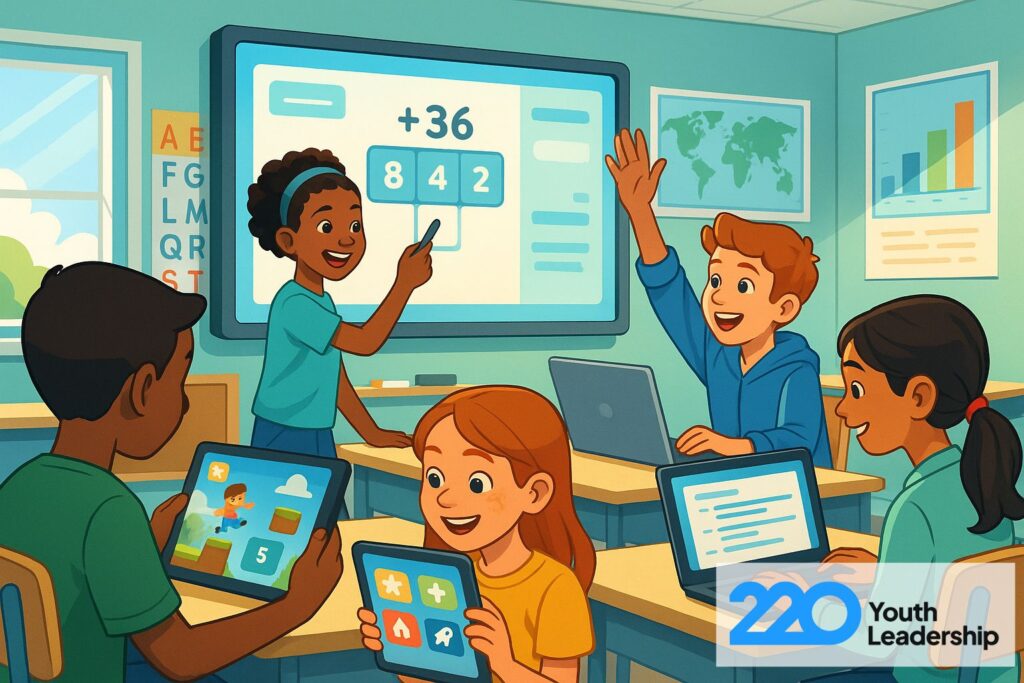
Maximizing Student Engagement Through Technology in the Classroom
Ever wondered how educational technology can transform a classroom into a hub of excitement and learning? I’m talking about students engaged in interactive lessons, collaborating in real-time, tackling challenges, and making measurable progress at their own pace. This is made possible by leveraging digital tools like educational apps, augmented reality, and virtual reality, with which ... Maximizing Student Engagement Through Technology in the Classroom
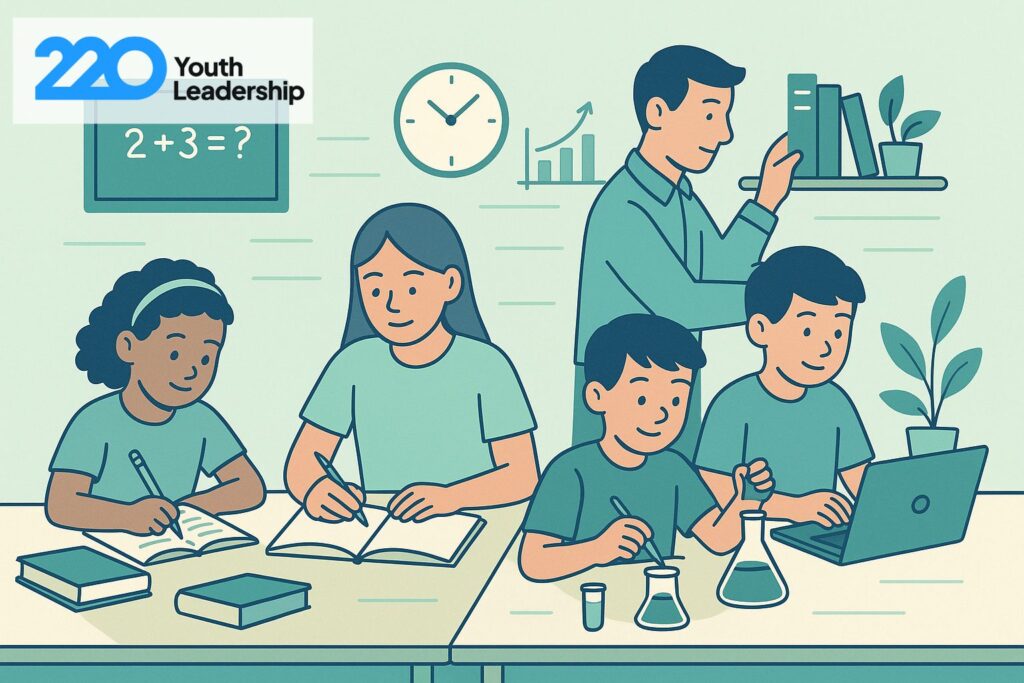
Does Homework Help Students Learn? Examining the Evidence
Homework assignments can support academic performance, but their benefits largely depend on quality, quantity, and frequency. In this article, we will examine the role of homework, with the objective to show how homework helps students achieve academic success while addressing mental health and equity concerns. We will also answer the question of how much homework ... Does Homework Help Students Learn? Examining the Evidence

Expanding Opportunities with the Career Scholarship Account Indiana Program
The Career Scholarship Account (CSA) is helping Indiana high school students get real-world experience and job-ready skills, without the stress of extra costs. Funded by the state, it covers tuition, uniforms, and more, making it easier for teens to prepare for life after graduation. In this article you will learn about the key features, eligibility, ... Expanding Opportunities with the Career Scholarship Account Indiana Program
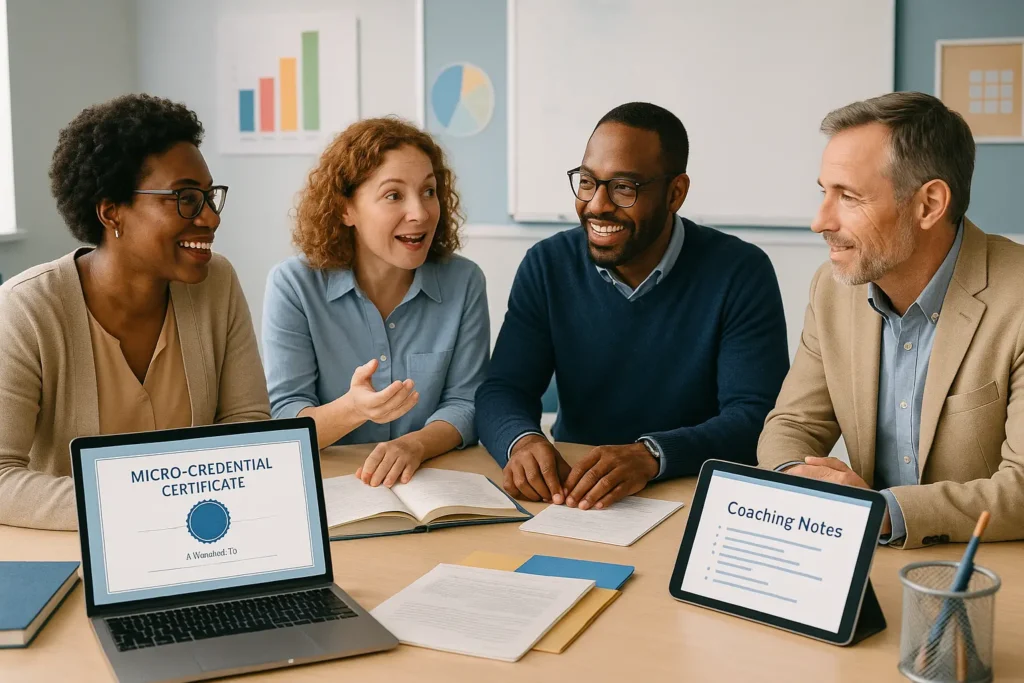
7 Innovative Teacher Professional Development Ideas to Transform Your Teaching
Want to improve your teaching skills? Discover seven innovative teacher professional development ideas. Explore personalized plans, instructional coaching, and more to enhance your growth as an educator in professional education. Key Takeaways Personalized Professional Development Plans Teachers inspire students when their professional development matches their unique needs. Personalized plans deliver targeted training, helping educators grow ... 7 Innovative Teacher Professional Development Ideas to Transform Your Teaching

Top Strategies for Effective Instructional Leadership
Instructional leadership involves improving teaching quality and student outcomes. In this article, we’ll discuss the roles of instructional leaders, skills they need, ways to support teachers, and strategies to enhance student learning and school culture. Key Takeaways Understanding the Role of Instructional Leaders Instructional leadership is all about the practical actions that help teachers teach ... Top Strategies for Effective Instructional Leadership

How to Address Student Disengagement in Your Classroom
Student disengagement starts with a glance away, a slumped posture, or the dreaded blank stare. You’re delivering your lesson, but most students are somewhere else, not physically but mentally. The energy shifts, engagement dips, and the class sessions rhythm falter slowly. For many teachers, this is an all-too-familiar scene. But behind every disengaged student is ... How to Address Student Disengagement in Your Classroom
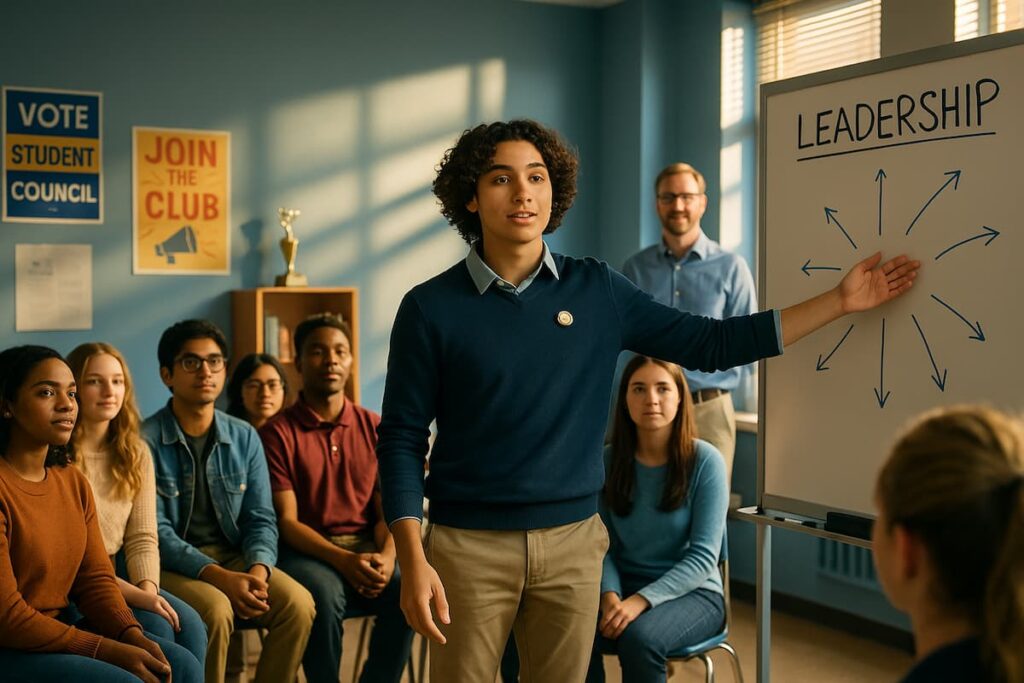
7 Strategies on How to Get Leadership Positions in High School
Wondering how to get leadership positions in high school? This guide will show you proven strategies to help you achieve that goal. You’ll learn how to stand out, and take the lead through joining clubs or starting your own projects. Key Takeaways Identify Your Interests and Passions Great leaders start by knowing themselves. What gets ... 7 Strategies on How to Get Leadership Positions in High School

How to Develop Leadership Skills in Kids: Top Strategies for Parents
Discover how to develop leadership skills in kids. Explore effective activities, tips for resilience, teamwork, and emotional intelligence.

Why Social Emotional Learning Is Essential for Student Success
Mia’s hands trembled as she faced her first group project in 10th grade. Her heart raced, her voice faltered, and the fear of being mocked made her feel like she was disappearing. Then her school introduced social emotional learning (SEL). Through a few journal entries and deep breaths, Mia found her strength and led her ... Why Social Emotional Learning Is Essential for Student Success

Indiana Graduation Requirements: What High School Students Need to Know
Planning your high school graduation can feel like a race with no finish line in sight. I remember sweating over my course plan, wondering if I’d cross it. Good news? You’ve got a head start, and this guide is your playbook to sprint through Indiana graduation requirements and soar to your future. Whether you’re aiming ... Indiana Graduation Requirements: What High School Students Need to Know

Student-Centered Learning: A Guide For Modern Educators in 2025
Let’s face it: the world is moving fast, and traditional education models are increasingly falling short when it comes to preparing students for the complex future ahead. So, what’s the answer? Many modern educators are turning to a powerful, transformative approach that’s reshaping classrooms globally: student-centered learning. The essence of this pedagogical structure is where ... Student-Centered Learning: A Guide For Modern Educators in 2025
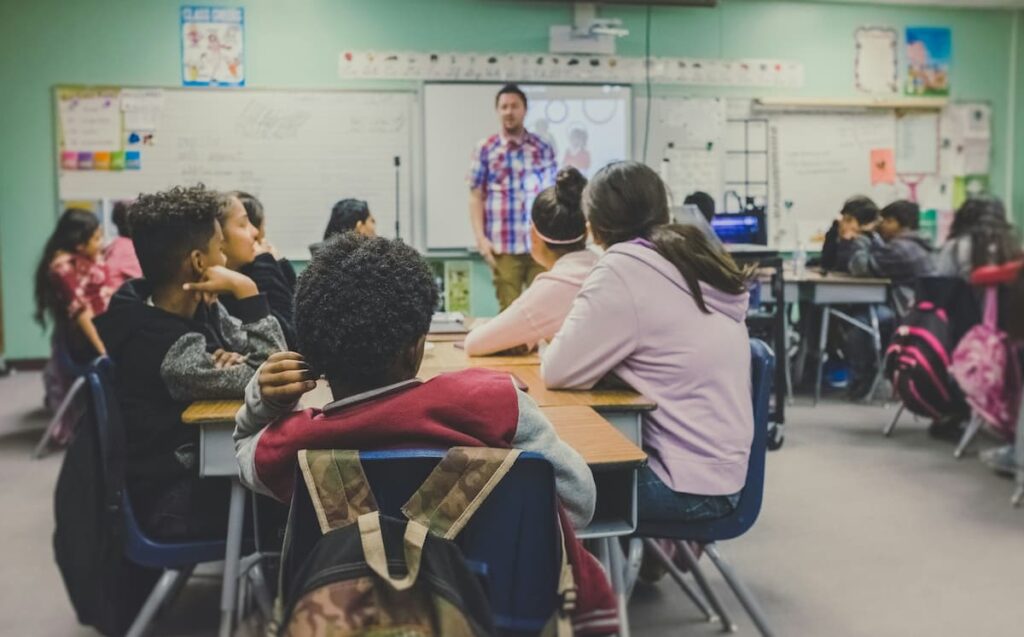
Boosting Student Engagement: Effective Strategies for Educators
We’ve all watched those standout students, the ones whose eyes light up when a new topic is introduced, who lean forward, eager to ask questions and grapple with new ideas. Their enthusiasm isn’t just luck or natural talent; it’s the result of genuine engagement. While behavioral, cognitive, and emotional engagement form the foundation, implementing actionable ... Boosting Student Engagement: Effective Strategies for Educators
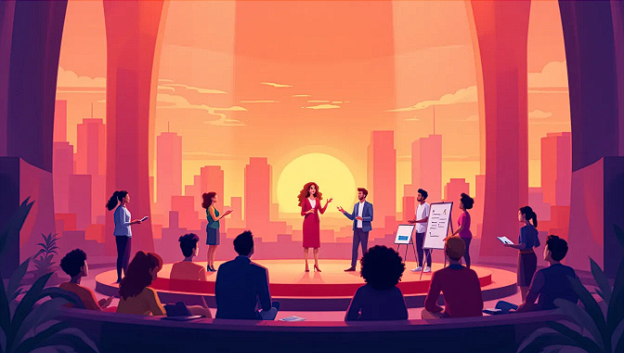
Effective Strategies for Teaching Leadership Skills to Students
Ever watched a shy student step up to lead a group project and thought, “Wow, they’ve got it in them!”? That’s what teaching leadership skills can do to a student. Leadership isn’t just for CEOs or politicians; it’s a set of skills that helps learners navigate challenges, inspire others, and make a difference, whether in ... Effective Strategies for Teaching Leadership Skills to Students

Top Classroom Engagement Strategies to Boost Student Participation
They’re not disengaged. They’re waiting for you to stop talking. Traditional participation rewards the boldest voices, but classroom engagement strategies to boost student participation flip the script by engaging students in the learning process. Gone are the days of raised hands and robotic replies. Today’s learners do better when lessons mirror real-world stakes like budgeting ... Top Classroom Engagement Strategies to Boost Student Participation

Top Principal Leadership Styles: Best Practices to Inspire Your School Community
Principal leadership styles shape a school’s culture and success. Discover the key leadership styles and how they can transform your school. Key Takeaways Understanding Principal Leadership Styles Principal leadership styles are the linchpin in the complex machinery of a school’s environment, directly influencing the effectiveness of educational reforms and academic performance. Leadership choices resonate through ... Top Principal Leadership Styles: Best Practices to Inspire Your School Community

Top Leadership Examples for Students: Practical Ways to Lead
Want to know how students can demonstrate leadership? In this article, we cover various leadership examples for students, such as student government and community service, to help them grow and succeed. Key Takeaways Demonstrating leadership skills is crucial for students, enhancing personal growth, responsibility, and future success. Participation in student government, extracurricular activities, and community ... Top Leadership Examples for Students: Practical Ways to Lead
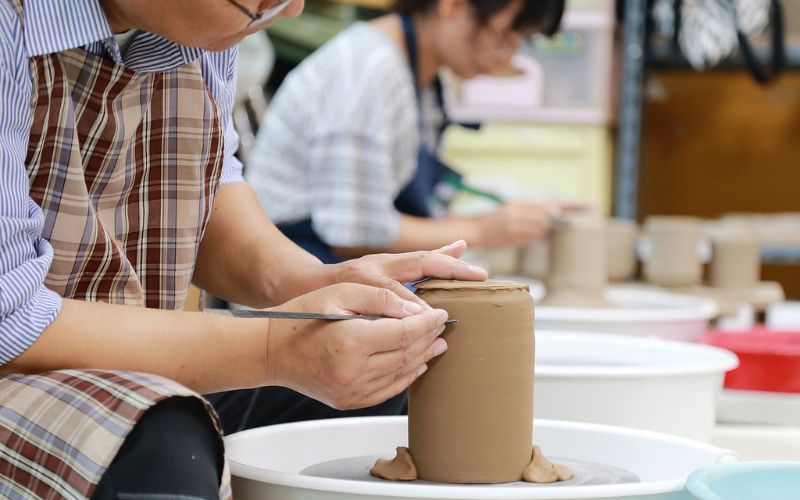
What Is Work-Based Learning? Understanding Practical Education
Work-based learning (WBL) combines classroom education with practical work experience to prepare students for their careers. This article covers what is work-based learning, its core elements, and its benefits for students and employers. Key Takeaways Work-Based Learning (WBL) integrates academic education with practical workplace experiences, preparing students for successful transitions to their careers. Core components ... What Is Work-Based Learning? Understanding Practical Education

Essential Guide to New Indiana Diploma Requirements
Indiana now requires high school students to complete 42 credits to graduate, with new options like readiness seals for college, job, or military preparation, in line with the New Indiana Diploma Requirements. This guide explains these changes and what they mean for your future. Key Takeaways Indiana has updated high school diploma requirements to include ... Essential Guide to New Indiana Diploma Requirements

Top 25 Entrepreneurship Ideas for Students to Kickstart Their Journey
Seeking ways to start your own business while studying? This guide covers the top 25 entrepreneurship ideas for students, from tutoring and app development to creative ventures and service-based businesses. Discover how you can earn extra income and gain practical experience. Key Takeaways Students can explore a variety of innovative startup ideas, such as tutoring, ... Top 25 Entrepreneurship Ideas for Students to Kickstart Their Journey
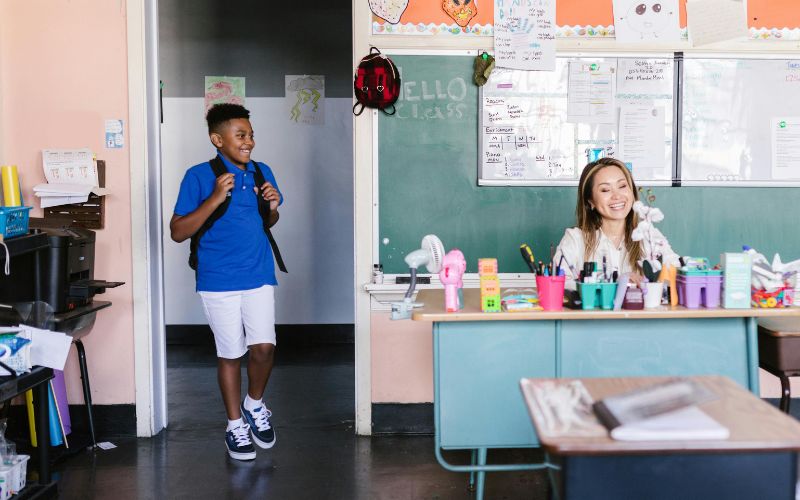
Top Employability Skills for Students: Prepare for Workplace Success
To succeed in the workplace, students need strong employability skills for students. These skills make students more attractive to employers and include communication, teamwork, and problem-solving. This article outlines key employability skills for students and provides tips on how students can develop them. Key Takeaways Understanding Employability Skills Employability skills are transferable abilities valuable in ... Top Employability Skills for Students: Prepare for Workplace Success

Best Practices for Developing Leadership in Students
Developing leadership in students is crucial for their academic and social success. This article discusses practical strategies and approaches to prepare students and help them build leadership skills, enhancing their confidence and ability to lead in various settings. Key Takeaways Leadership skills are essential for students, contributing to personal growth, career advancement, and effective collaboration. ... Best Practices for Developing Leadership in Students

Top Strategies for Effective Teacher Leadership in Today’s Schools
Teacher leadership is the ability of teachers to influence their peers, students, and the broader school community to improve education. This role goes beyond classroom instruction and is vital for school success. But what exactly does teacher leadership entail, and how can it be practiced effectively? In this article, we’ll explore key strategies, qualities, and ... Top Strategies for Effective Teacher Leadership in Today’s Schools

Top 15 Student Engagement Strategies for Active Learning – With Examples
Struggling to keep your students interested and engaged? Discover 15 student engagement strategies that will make your classroom more interactive and your students more enthusiastic about learning. Key Takeaways Student engagement significantly enhances academic success, personal development, and the cultivation of critical thinking and problem-solving skills. Strategies such as collaborative learning, active learning techniques, and ... Top 15 Student Engagement Strategies for Active Learning – With Examples
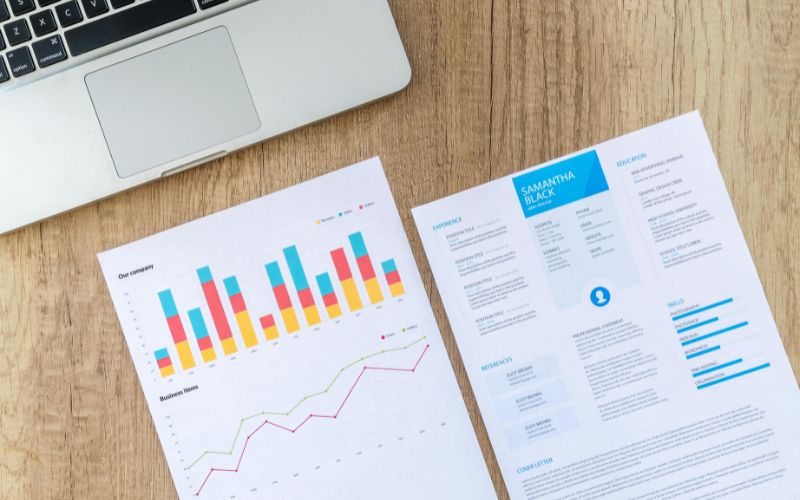
How Can You Add a Course to a Resume? (Best Tips & Examples)
Yes, you can add a course to a resume. Listing relevant coursework can be especially beneficial for recent graduates, career switchers, or those with limited professional experience. In this article, you’ll learn when to include courses and how to effectively list them. You will also see examples to guide you in adding a course to ... How Can You Add a Course to a Resume? (Best Tips & Examples)

Why Don’t Schools Teach Personal Finance? Uncover the Real Reasons
In today’s money driven world, where financial decisions can make or break futures, one glaring question persists: why don’t schools teach personal finance? Despite its crucial role in shaping financially savvy adults, personal finance education remains shockingly absent from most school curricula. Outdated teaching methods, an overwhelming focus on standardized testing, and a lack of ... Why Don’t Schools Teach Personal Finance? Uncover the Real Reasons

Youth Entrepreneurship: Best Practices for Guiding Young Innovators
Youth entrepreneurship involves young people starting and running their own businesses. It’s essential for economic growth, job creation, and fostering innovation. Young entrepreneurs gain important skills like leadership and problem-solving. This article discusses the importance, benefits, and support strategies for youth entrepreneurship. Key Takeaways Youth entrepreneurship empowers young minds to drive economic growth and create ... Youth Entrepreneurship: Best Practices for Guiding Young Innovators
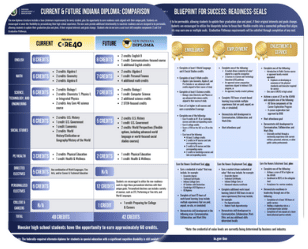
220 Youth Leadership Aligns Curriculum with New Indiana Diploma Requirements
Overview of New Diploma Requirements In December 2024, the Indiana State Board of Education approved transformative changes to high school diploma requirements, demonstrating a forward-thinking approach to preparing students for success beyond secondary education. These comprehensive updates aim to equip students with practical skills and real-world experiences that are crucial for college, career, and life ... 220 Youth Leadership Aligns Curriculum with New Indiana Diploma Requirements

Essential Classroom Leadership Skills for Effective Educators
Looking to understand classroom leadership? Simply put, classroom leadership is about how educators guide students and create a productive learning environment. It’s crucial because effective leadership can boost student engagement and learning outcomes. This article dives into essential skills, leadership styles, and practical strategies for teachers to excel in their roles. Key Takeaways Effective classroom ... Essential Classroom Leadership Skills for Effective Educators

Why Is Student Engagement Important and How To Achieve It
Student engagement plays a key role in academic success, critical thinking, and retention. This article explains why is student engagement important and offers ways to boost it. Interesting Student Engagement Insights Engaged students are 2.5 times more likely to say they get excellent grades and do well in school, and 4.5 times more hopeful and ... Why Is Student Engagement Important and How To Achieve It
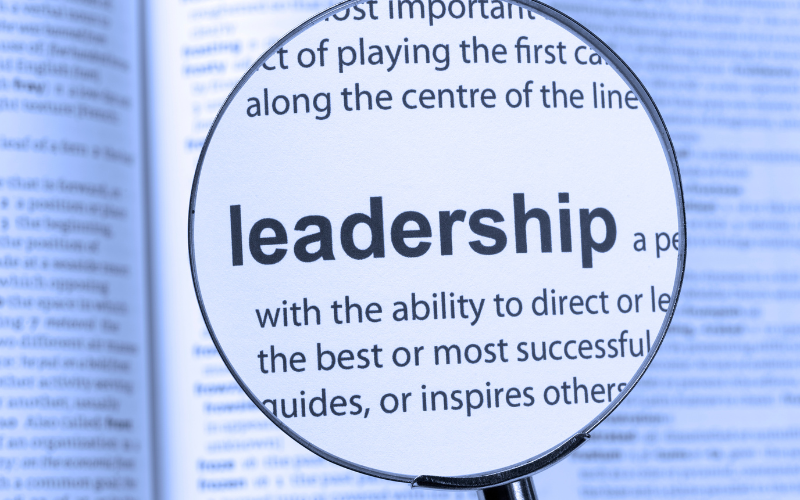
Effective Leadership Styles in Education and How They Impact Learning
What are the different leadership styles in education, and how do they impact schools? This article explores various leadership styles used in educational settings and examines their effects on school culture and student outcomes. Understanding these styles can help educational leaders create a positive learning environment and address the unique needs of their schools. Key ... Effective Leadership Styles in Education and How They Impact Learning

The Future of Youth Leadership Development
Interested in how youth programs can prepare the next generation of leaders? Youth leadership development focuses on building young people’s skills to lead and serve their communities effectively. In this article, explore the essential elements of youth leadership development programs and discover what makes these initiatives effective in nurturing the next generation of leaders. Interesting ... The Future of Youth Leadership Development
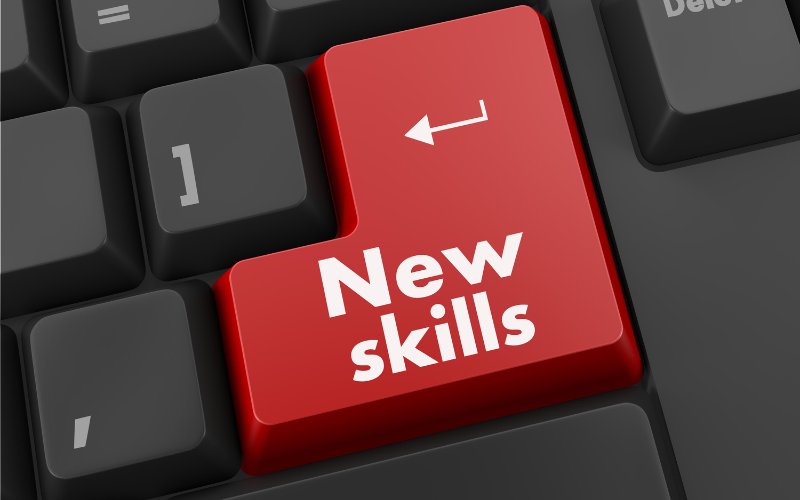
Why Are Employability Skills Important? Essential Insights for Career Success
Employability skills are vital because they help you get and keep a job. These skills include technical know-how, organisational skills, and soft skills. This article explains why are employability skills important for your career. These skills are crucial for career readiness, ensuring that individuals are well-prepared to meet the demands of the modern workplace. Quick ... Why Are Employability Skills Important? Essential Insights for Career Success

Understanding What Is Student Leadership: A Comprehensive Guide
Student leadership means guiding and influencing peers through official positions or by setting a positive example. This article explains what student leadership is, why it matters, and how students can develop leadership skills. Key Takeaways Defining Student Leadership Student leadership involves students taking on roles that allow them to guide and influence their peers, either ... Understanding What Is Student Leadership: A Comprehensive Guide

What is Work Based Learning in High School? A Guide for Educators and Students
Work-based learning in high school blends classroom education with hands-on work experiences. It equips students with vital skills and insights into various careers. In this guide, we’ll discuss different programs related to what is work based learning in high school, their benefits, and how they integrate with career and technical education. Collaboration with postsecondary institutions ... What is Work Based Learning in High School? A Guide for Educators and Students

How To Encourage Entrepreneurship In Your School
Promoting entrepreneurship in schools can ignite students’ drive and creativity, preparing them for a dynamic future. But how can educators and administrators effectively encourage entrepreneurship? This article explores practical strategies to inspire and nurture entrepreneurial skills in students, ensuring they are well-equipped for the challenges ahead. From creating student entrepreneur hubs to integrating real-world business ... How To Encourage Entrepreneurship In Your School